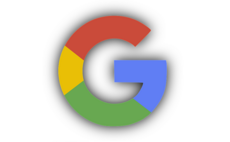If you can live without personalisation there are plenty of alternatives
DuckDuckGo
Privacy search companies seem to revel in peculiar names, perhaps with a view that if you are going to take on a foe as mighty as Google you need to make sure you stand out. DuckDuckGo (DDG) is perhaps the best-known privacy-focused search engine, performing 50 million searches a day.
As a metasearch engine, DDG pulls search results from other sources, most notably Yahoo/Bing but there are around 400 others too.
If you click a search link on Yahoo or Bing directly those engines share your search terms with the target site together with information such as your IP address and browser configuration which can be used to identify you. DDG redirects the search so that the site cannot identify the searcher (although sites may still be able to identify you by your device's characteristics). In addition, the company stores no user information other than the search terms used. This means that suggested searches are possible, unlike with some privacy-oriented engines.
DDG earns revenue by serving keyword-based search ads (i.e. ads that are interest-based rather than targeted through profiling) and through affiliate relationships with Amazon and eBay.
‘Bangs' (search shortcuts starting with an exclamation mark; starting a query with !a searches Amazon.com, for example) are a longstanding DDG feature and there are now more than 13,000 of them. There are apps for Android, F-Droid and iOS which feature tracker blockers and force traffic encryption. DDG is the default search engine on Tor Browser. Source code is hosted on GitHub.
DDG seems to have improved over the last couple of years. It used to be US-centric unless manually configured otherwise whereas now it bases searches on IP-based location; image search is also better than before, although as a publisher we'd appreciate a usage rights filter. There's a video search and also news, maps (Apple/Bing) and ‘meanings' (i.e. dictionary definitions). If you're looking for a drop-in Google (or perhaps Bing) replacement DDG is a prime candidate.
Pros: Slick, fast, !bangs
Cons: Some questions over relationship with Yahoo/Verizon
Startpage
Dutch search engine Startpage begins with the premise that - bar the tracking and everything that goes with it - Google's search results are the best. So, the company pays Google to use its APIs but obfuscates users' details via a web proxy, removing all the trackers and logs. The company handles 6 million search requests per day.
Startpage's business model includes selling non-tracking, keyword-based ads, which appear at the top of the results list. Recently, the company became embroiled in controversy when an advertising company System1 bought what's reported to be a controlling share. Startpage insists its privacy terms for users won't change stating that System1 will bring value through its marketing expertise, especially in the hard-to-crack US market. But a perceived lack of transparency and the initial failure by the company to adequately explain the terms of the deal led to it being delisted from privacytools.io.
Startpage offers an image search with size, colour and type filters; video search (YouTube) and news - but no maps. Search results (but not for videos) can be viewed using the ‘Anonymous View' feature which prevents the target site from knowing the search term that brought you there, or from using cookies or fingerprinting to identify you, by routing encrypted searches through Startpage's servers. "They'll never know you were there," the company promises.
Startpage is one of the oldest privacy engines out there (originally it was called Ixquick) and in terms of innovation as well as results, one of the best. Because it uses Google, the results are similar to the search giant's, although not exactly the same because of the lack of personalisation. News is also slightly behind. Like many other engines, Startpage provides Instant Answers from Wikipedia and other sources, so you don't need to click away from the results page.
Given the importance of trust, allowing such a substantial investment from an advertising company would seem to be an unwise strategy, although the company points out that Qwant and DuckDuckGo are also VC-invested and the latter has a partnership with Yahoo/Verizon. We await future developments with interest.
Pros: Long-established private search engine, Google-like results, Anonymous View feature
Cons: No maps tab, question mark over investment by System1
Continues





















